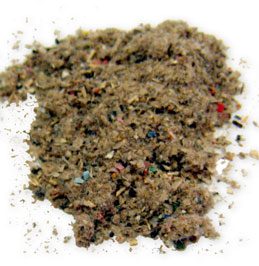Refuse-derived Fuels: From Waste to Energy
- Many industries burn refuse-derived fuels and solid recovered fuels as energy source.
- Biogenic carbon fraction of RDF or SRF is determined using analytical standards ASTM D6866 and EN ISO 21644.
- EN ISO 21644 testing is applicable to companies in Europe while the ASTM D6866 standard is often used in the US and other regions.

Refuse-derived fuels (RDF) are produced from municipal solid waste (MSW) that has been shredded then subsequently treated with pressurized steam in autoclaves. Also called solid recovered fuels (SRF), RDFs are mainly composed of the organic portions of MSW like paper, cardboard, textiles, and wood. A significant portion of SRFs and RDFs, however, includes mixed plastics. SRFs and RDFs can be derived from household, commercial, or industrial wastes and other combustible waste streams.
Conversion of waste into refuse-derived fuels or solid recovered fuels serves two purposes – it reduces the volume of waste sent to landfills thereby solving problems in the waste sector, and it provides alternative fuels for energy-intensive industries. RDFs are used for energy recovery in cement kilns, power stations, and industrial boilers as substitute to fossil fuels. To meet the strict standards of the Waste Incineration Directive, cement kilns in Europe use RDF.
RDFs and SRFs have proven to be effective substitutes to fossil fuels because they have low production costs but have significant thermal value. European countries that produce and use SRF include Austria, Italy, Germany, Greece, the Netherlands, UK, and the Scandinavian countries. In Japan, Refuse Plastic & Paper Fuel (RPF) is more widely used. RPF is made of non-reclaimable used paper and plastic waste excluding PVC (Polyvinyl chloride) and PVDC (Polyvinylidene chloride).
EN 15440 Testing for RDF (withdrawn in 2021 and superseded by EN ISO 21644)
A standard has been developed to measure the biomass carbon fraction of refuse-derived fuels and solid recovered fuels. This standard, EN 15440, determines the biogenic carbon fraction of solid recovered fuels using radiocarbon dating techniques.
EN 15440 is similar to the ASTM D6866 standard in the U.S. Both standards use the radiocarbon dating technique to distinguish the biogenic fractions of samples from their fossil-based components.
For details on how radiocarbon dating can distinguish biogenic components from fossil-based ones, read more about ASTM D6866.
European Greenhouse Gas Protocols
Greenhouse gas protocols in Europe have cap carbon dioxide emissions in certain industries. Companies can obtain carbon credits if they do not exceed their annual CO2 emission limits. These carbon credits have monetary value and are tradable under the European Union Emissions Trading Scheme. The UK also has a Renewable Obligation Certificate program that incentivizes renewable energy generation by companies.
Companies that use RDF must prove that a certain fraction of the fuel is biogenic. It is important for these companies to know the biogenic fraction of their fuels because biogenic CO2 is deductible from their greenhouse gas inventories.